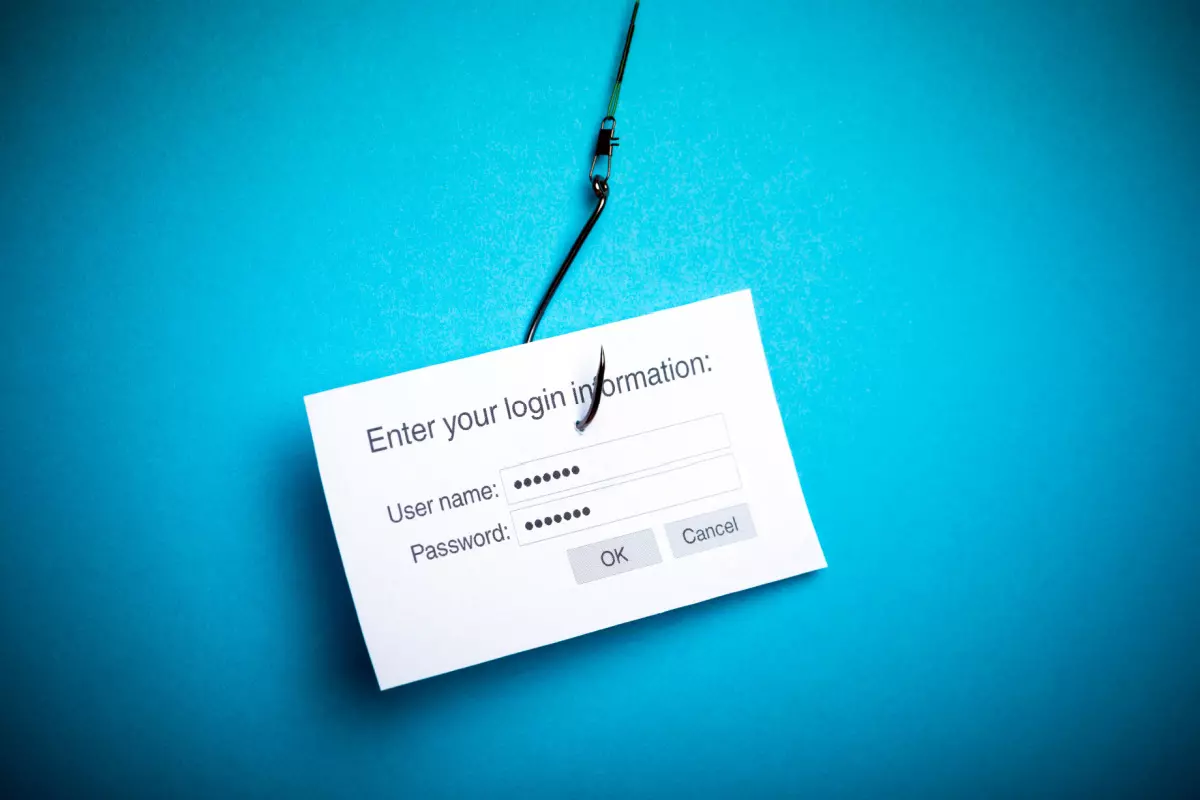8 Types of Financial Fraud and Scams to Avoid
In today’s digital age, where convenience is a click away, so are the opportunistic pitfalls set by financial fraudsters. And for many people, distinguishing between genuine opportunities and deceitful traps can be challenging.
With so many types of financial fraud, it’s good to know what’s out there to avoid them. This blog will give you an overview of the eight common types of scams and offer tips on preventing them. Dive in and keep your money secure from sneaky scams!
Common Types of Financial Fraud
Financial scams continue to be a significant and growing concern. According to the Federal Trade Commission (FTC), 2.4 million individuals were victims of fraud in 2022. This alarming figure showcases the need for individuals to remain vigilant and protect themselves. Let’s learn more about the most common scams so you can be better equipped to spot and sidestep any potential threats.
Identity Theft
Identity theft is one of the most common types of financial fraud. In fact, the Federal Trade Commission (FTC) received 5.7 million identity theft reports in 2021.
Identity theft occurs when a thief unlawfully accesses your personal information, like your Social Security number or bank account details. This information is then used for financial gain, such as making purchases, opening new accounts, or even obtaining loans in your name.
If you notice a series of unfamiliar transactions on your bank statement, possibly even from places you’ve never been, this might be a sign that you’ve fallen victim to identity theft. Immediately call your bank and ask them to freeze your account. One tip to avoid identity theft is to implement strong, unique passwords for online accounts and avoid sharing personal details on unsolicited calls or emails.
Phishing Scams
Phishing scams trick you into providing personal or financial details by impersonating legitimate entities. These scams often utilize fake emails, misleading links, counterfeit websites, and even unsolicited phone calls to lure victims. This type of financial fraud accounts for 36% of all data breaches in the U.S.

For example, an email that appears to be from your bank claiming that they have detected suspicious activity or an unexpected lottery-winning announcement can all potentially be phishing scams. By clicking any links from these emails, you may be directed to a fake login page designed to steal your credentials. Always double-check the email sender’s address for discrepancies, and use email filters to help identify phishing attempts.
Ponzi Schemes
Ponzi schemes promise high returns with little risk to attract investors. But instead of genuine profit from legitimate business activities, upper-level individuals profit by recruiting others to join. As new members join, they pay fees or make an initial investment, and a portion of this money is used to pay returns to earlier investors.
The money made by new recruits is passed up the ladder to more senior individuals. Eventually, as recruitment becomes unsustainable, the scheme collapses. The danger of Ponzi schemes is that as recruitment slows, the money dries up, and most participants are left with losses. For example, you may invest money and get a return from the investments of those you recruit. However, as recruitment becomes challenging, newer participants struggle to see returns, causing the structure to collapse, leading to financial losses for many.
If you’re pitched a “once-in-a-lifetime” investment opportunity promising lucrative returns for recruiting other people under you, this may be a Ponzi scheme. Look out for ads that promise high returns regardless of market conditions and heavily depend on recruiting new investors. The Ponzi Scheme Tracking Authority has reported a sharp rise in these scams within the past few years.
Advance Fee Fraud
This type of financial fraud also revolves around promises. You may be offered something valuable – an inheritance, prize, or a product – but there is a catch: an upfront fee is required. Once you make the payment, the promised reward is never delivered.
Advance fee frauds are typically disguised as “you have won an overseas lottery,” and the upfront fee may be referred to as a “security deposit” or “processing fee.” In fact, according to a report by UK Finance, these types of schemes have increased by 33%. To circumvent these types of scams, never pay an upfront fee for a prize or inheritance. Always be suspicious of pressure to act quickly.
Tax Refund Fraud
Tax refund fraud is a deceptive tactic where criminals obtain an individual’s personal details, submit a sham tax return on their behalf, and claim the refund. Tactics used include phishing emails pretending to be from tax agencies, fake job offers that request personal details for “tax purposes,” or malicious software that captures sensitive tax-related data from personal computers. The IRS has already flagged over one million tax refund frauds.

Remember that tax agencies never demand immediate payment without sending a prior bill or threatening law enforcement involvement. Beware of unrecognized tax preparation platforms that present benefits that seem overly favorable. For instance, if you haven’t filed your returns and suddenly receive a notice about a filed return, it’s clear that someone may be claiming a refund fraudulently in your name.
Credit Card Fraud
Credit card fraud is a multi-faceted threat that can occur both physically and digitally. Your physical card may simply be stolen. However, more commonly, these scams are usually done through credit card skimming, where special devices on ATMs capture your card details when you insert your card. Once your credentials have been stolen, scammers use them to make purchases or take out loans in your name. The losses from online credit card scams in the U.S. reached $5.72 billion in 2022.
It may not always be easy to spot a credit card skimmer, and if you see any unfamiliar transactions, immediately contact your bank and ask them to freeze your account. But in general, always look for any unusual devices on ATMs or gas pumps, such as attached parts, as these might be skimming devices.
Emerging Types of Financial Scams
As fraudsters continuously evolve their tactics, several new types of financial fraud have emerged. Here are two of the rising scams to look out for.
The first type is job offer scams, which typically prey on job seekers. Scammers post fake job listings or send unsolicited job offers, enticing candidates with attractive salaries and benefits. As part of the onboarding process, they might ask for bank details or Social Security numbers.
Once they get these details, they use them to commit identity theft. It is estimated that Americans lose up to $2 billion on job offer scams each year. To protect yourself, always research the company offering the job and avoid sharing bank details for offers that seem too good to be true or ask for upfront payment.
The second type is resale scams, which are becoming increasingly popular on eBay and Facebook Marketplace. In some instances, a buyer might claim to have “overpaid” for an item and request the seller to refund the difference. In another case, a seller might receive the payment and never ship the product.
EBay scams have risen from $16.3 million in March 2020 to $42.3 million in April alone. Therefore, sellers should always wait for payments to clear before shipping items, and buyers should use only platform-approved payment methods to avoid getting caught in these traps.
How to Avoid Financial Fraud
Now that you know the most common types of financial fraud, you can take proactive steps to avoid them.

Here are some tips to help you add an extra layer of security and defense:
- Use Two-Factor Authentication (2FA): Two-factor authentication acts as a double barrier and can block 100% of automated bots, 96% of phishing attacks, and 76% of targeted attacks. When you log into your bank account from a new device with 2FA, you will receive an SMS or email with a verification code. It ensures that even if a hacker cracks your password, they will be blocked from accessing your account.
- Update Software Regularly: Software updates of computer operating systems and phone applications reinforce your digital fortress. They patch vulnerabilities, making it tougher for hackers to breach. Outdated software can leave your devices exposed to cyber threats, so stay protected by regularly checking your devices for updates. Also, be cautious of third-party software and only download updates from trusted sources or official app stores.
- Educate Yourself on Latest Scams: As scams evolve, so should your knowledge. Staying up to date with new schemes ensures you don’t fall for the next big trick. For instance, the IRS regularly shares common tax scams, helping you stay alert and not fall victim to potential financial fraud.
- Be Skeptical of Unsolicited Offers: If a money offer comes out of the blue, view it through a lens of suspicion. Whether it’s an unexpected call offering an “exclusive” investment or an email with an irresistible deal, take a step back, assess the authenticity, and report it as a scam. In 2022, 49% of all emails globally were identified as spam. And even though current technology allows email service providers to flag most suspicious emails before they get into your primary inbox, they may still not identify everything.
- Avoid Clicking Direct Email Links: Phishing emails are wolves in sheep’s clothing. If you receive an email that looks like it’s from your bank and contains a link, never click on it. Phishing emails often contain links that lead to fake versions of legitimate sites designed to steal your information. Instead, manually enter the bank’s URL and compare it with the link you received to ensure you’re not rerouted to a scam site.
- Activate Account Alerts: Stay a step ahead with real-time notifications. Setting up alerts, especially for large transactions or account changes, puts you in control. If you notice an unauthorized wire transfer attempt, you can halt it by immediately contacting your bank and asking to freeze your account.
FAQ on Financial Fraud Types
If you still have some questions about different types of financial fraud and how to avoid them, here are some common questions that may help provide clarity.
What Type of Fraud Occurs Most Frequently?
Identity theft consistently tops as one of the most frequently occurring types of consumer fraud. The digital age, with its wealth of personal information available online, has made it a ripe target for fraudsters looking to steal private information for financial gain.
What to Do if You Are a Victim of Fraud?
If you suspect you’re a victim of fraud, you should:
- Contact your bank or the related financial institution immediately to inform them of any suspicious activity.
- Monitor your accounts closely and change your passwords.
- Place a fraud alert on your credit reports.
- Report the fraud to local law enforcement.
- Keep all related correspondence and documents as evidence.
How to Report Bank Fraud?
If you believe you have been a victim of a scam, contact your bank’s fraud department immediately. Most banks also have a 24/7 phone line. Follow the bank’s guidelines on the next steps, which may include changing your passwords or freezing your account. Finally, file a report with your local police department.
How to File Fraud Charges?
Filing fraud charges is a multi-step process, which includes:
- Gathering all evidence of the fraud, including correspondence, transaction records, and any other relevant documents.
- Filing a report with your local police department.
- Depending on the nature and extent of the fraud, you may also need to contact state and federal regulatory agencies.
- Consult with a legal professional to ensure all proper channels are pursued.
Will I Get My Money Back if I’m Scammed?
Recovering funds after being scammed depends on various factors, including the type of fraud, the speed with which it’s reported, and the policies of the involved financial institution. But there are some tips that may help you get your money back in some situations:
- The sooner you report a scam, the higher your chances of recovery. For example, if you report unauthorized credit card charges within 60 days, federal law limits your liability to $50.
- Many banks offer zero-liability protection for unauthorized transactions, meaning you won’t be held responsible for charges if you report them in time.
- Once reported, the bank or credit card company will initiate an investigation. Depending on the outcome, you might receive a refund.
- If scammed on platforms like eBay or PayPal, they have their own dispute resolution process that may help in recovering funds.
Sum Up
Financial fraud is always a threat, from identity theft to Ponzi schemes. Staying informed and alert is your best protection.
The bottom line should be that if something feels off or too good to be true, it probably is. By maintaining vigilance and staying educated, you can confidently protect your finances and navigate the digital domain.
Table of Contents
- Common Types of Financial Fraud
- Identity Theft
- Phishing Scams
- Ponzi Schemes
- Advance Fee Fraud
- Tax Refund Fraud
- Credit Card Fraud
- Emerging Types of Financial Scams
- How to Avoid Financial Fraud
- FAQ on Financial Fraud Types
- What Type of Fraud Occurs Most Frequently?
- What to Do if You Are a Victim of Fraud?
- How to Report Bank Fraud?
- How to File Fraud Charges?
- Will I Get My Money Back if I’m Scammed?
- Sum Up